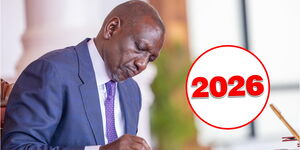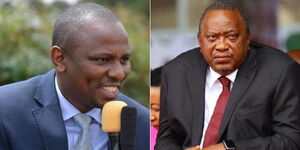India's Adani Group is laying the groundwork to expand its ventures into Kenya, with a new plan to construct hydroelectric plants. This move follows ongoing talks with the government over a $1.3 billion (about Ksh168 billion in the current exchange rates) deal for power transmission lines.
With a global goal to establish 10 gigawatts of overseas hydropower, Adani has turned its gaze toward Kenya among other countries, despite facing significant scrutiny for its past dealings.
The conglomerate, led by its green energy arm, Adani Green Energy, has already established a strong renewable energy presence in India. It aims to achieve a capacity of 50 gigawatts by 2030.
According to Reuters, Adani is keen to tap into Kenya's untapped potential, eyeing favourable topography and hydropower demand. Yet concerns linger over the group’s controversial reputation and its dealings in the region.
Earlier this year, reports surfaced that Adani Transmission had secured a significant contract to construct 388 kilometres of high-voltage transmission lines in Kenya. These lines, including the 206-kilometre Gilgil-Thika-Malaa-Konza line and the Menengai-Ol Kalou-Rumuruti line, are critical infrastructure. However, both the Adani Group and the Kenya Electricity Transmission Company (Ketraco) have since clarified that negotiations are ongoing, leaving the fate of the project uncertain.
Kenya's government is under pressure to lower energy costs, with Adani proposing a cost of debt at 11.5 per cent and an internal rate of return of 16 per cent. Meanwhile, Ketraco has pushed for more favourable terms, seeking a 9.5 per cent debt cost and a 14 per cent equity return. This back-and-forth has drawn the attention of both industry players and the public, with many questioning the true cost of such a partnership.
Adding to the tension, Adani is currently embroiled in controversy over a $2 billion bid to take over Jomo Kenyatta International Airport. Public scrutiny of this deal has bled into Adani’s power sector ambitions, with Kenyans wary of the conglomerate’s growing influence in the country. The group’s involvement in hydroelectric projects, although promising on paper, may face significant resistance if past ventures are any indication.
Adani’s track record has sparked debate not only in Kenya but across the region. While it pushes forward with plans to build hydroelectric projects in countries like Nepal, Bhutan, and the Philippines, the company remains tight-lipped about how it plans to navigate Kenya’s political and public landscape. Questions over environmental sustainability and the company’s financial practices are now taking center stage.
The group's expansion comes at a crucial time for Kenya. The government is grappling with high energy costs, and the public is increasingly concerned about the sustainability of power projects. Parliament is currently reviewing the process of power acquisition, aiming to reduce the financial burden on consumers. Adani’s entry into the market could either ease or exacerbate these tensions, depending on how the negotiations unfold.
Kenya has long been a battleground for large international conglomerates seeking a foothold in Africa's energy market. Adani’s entry, especially given its prior controversies, is likely to ignite further debates on foreign involvement in the country's infrastructure development. Public sentiment has become more cautious, with many calling for transparency in government deals with foreign entities.
Amidst these concerns, Adani has not made any public declarations on whether it will proceed with its plans to build hydroelectric plants in Kenya. Its silence, coupled with its ongoing transmission line negotiations, leaves the future of its involvement in the country’s energy sector uncertain.












